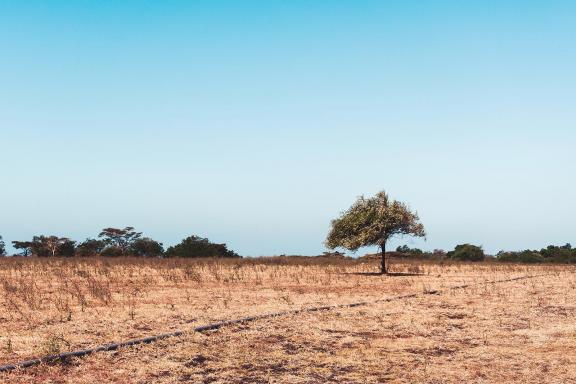IRM presents at the 14th annual International Conference on Community-based Adaptation to Climate Change (CBA14)
As the world struggles to come to grips with a global health pandemic, we’re reminded every day of our vulnerability on Earth, and the dangers that threaten our livelihoods. While climate change doesn’t spread like a virus, its impacts are more devastating and pose an even greater risk to our survival, particularly when action is stalled because other threats are seen to be more immediate. Both Covid-19 and climate change have a greater impact on the world’s most vulnerable populations, and that’s why efforts to combat climate change include both mitigation activities (reducing greenhouse gas emissions) and adaptation measures (reducing vulnerability to the effects of climate change).
Adaptation projects are essential for communities who are at risk of sea-level rise, other hazards caused by extreme weather such as hurricanes, flooding, droughts, and other climate-related natural disasters, and long-term risks posed by erosion, glacier melting, and air pollution. It is essential that these activities aimed at protecting communities are developed together with communities, whose local perspectives will ensure the long-term success of these projects. It is for this reason that the International Institute for Environment and Development (IIED) hosts an annual International Conference on Community-based Adaptation (CBA), which this year took place virtually because of Covid-19. The aim of this conference is to bring together practitioners working in the climate change space to listen to local perspectives and share experiences of effective solutions for building resilience to climate change.

The Green Climate Fund (GCF) supports adaptation projects with the aim for a 50:50 balance between mitigation and adaptation investments over time. It also aims for a floor of 50 percent of the adaptation allocation for particularly vulnerable countries, including Least Developed Countries (LDCs), Small Island Developing States (SIDS), and the African States.
The Independent Redress Mechanism (IRM) of the GCF has welcomed the opportunity presented by Covid-19 to participate virtually in many more events than would have been possible pre-Covid times. Going virtual, while it certainly has its challenges, has given the IRM access to greater networks of people who may be interested in hearing about what a redress mechanism has to offer. The IRM can be helpful to vulnerable communities affected by climate change, who may also be negatively affected by a project intended to help them adapt to climate change.
The IRM presented a “skill-share” session at CBA14 together with Tebtebba (Indigenous Peoples’ International Centre for Policy Research and Education). Tebtebba published a briefing paper which triggered a self-initiated inquiry by the IRM into the first-ever project funded by the GCF – FP001 in Peru. Tebtebba is also an accredited observer organisation of the GCF. The IRM and Tebtebba shared information about complaints handling processes with participants of CBA14. While the focus was on the IRM of the GCF, the aim of the session was to spread the word more generally about the role that accountability mechanisms play in development finance. These mechanisms exist for people to use them – and for that, people need to know about them! The IRM and Tebtebba unpacked the IRM processes, and how potentially affected people can submit a complaint to the IRM, including how civil society organisations (CSOs) like Tebtebba can support complainants or bring information to the IRM which could trigger a self-initiated inquiry by the IRM.
The IRM continues to reach out to as many stakeholders as possible, and we are constantly looking for new and innovative ways to collaborate with CSOs and to engage with potential complainants. Our outreach strategies include hosting targeted events in regions/countries identified as priority areas for outreach based on the IRM’s assessment of the GCF’s portfolio of projects using a set of risk criteria, and engaging with as many CSO networks as possible who can assist with disseminating information about the IRM to their contacts. The IRM is also active on the lookout for opportunities such as CBA14, which allow the IRM to connect with groups that are likely to be involved in GCF projects. As always, the IRM is open to any suggestions for improvement and we welcome feedback on how we can do better to spread our message.